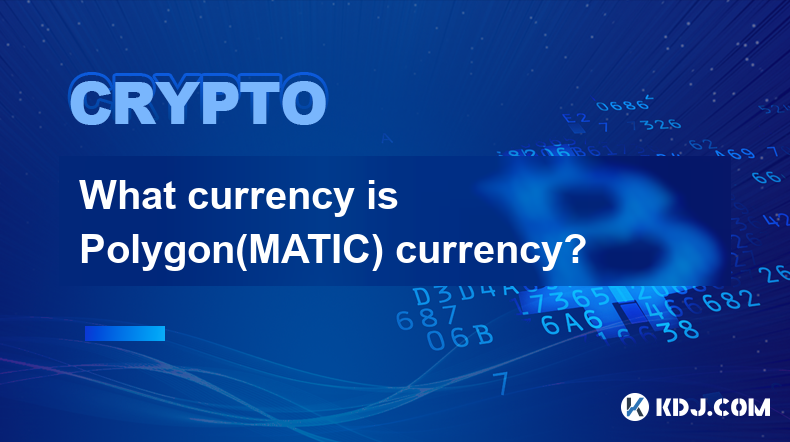-
 Bitcoin
Bitcoin $94,390.3823
-1.51% -
 Ethereum
Ethereum $1,809.5396
-1.25% -
 Tether USDt
Tether USDt $1.0001
-0.02% -
 XRP
XRP $2.1556
-1.52% -
 BNB
BNB $585.5542
-2.25% -
 Solana
Solana $143.9312
-2.02% -
 USDC
USDC $1.0000
0.00% -
 Dogecoin
Dogecoin $0.1708
-2.67% -
 Cardano
Cardano $0.6742
-3.87% -
 TRON
TRON $0.2465
0.40% -
 Sui
Sui $3.2660
-2.08% -
 Chainlink
Chainlink $13.8776
-2.75% -
 UNUS SED LEO
UNUS SED LEO $9.0792
1.46% -
 Avalanche
Avalanche $19.8363
-3.56% -
 Stellar
Stellar $0.2660
-1.30% -
 Toncoin
Toncoin $3.0177
-2.31% -
 Shiba Inu
Shiba Inu $0.0...01263
-2.81% -
 Hedera
Hedera $0.1763
-2.46% -
 Bitcoin Cash
Bitcoin Cash $356.3130
-1.92% -
 Hyperliquid
Hyperliquid $19.8818
-4.94% -
 Litecoin
Litecoin $85.2444
-1.64% -
 Polkadot
Polkadot $3.9151
-3.07% -
 Dai
Dai $1.0001
0.01% -
 Monero
Monero $279.2912
0.46% -
 Bitget Token
Bitget Token $4.3204
-1.32% -
 Ethena USDe
Ethena USDe $1.0005
-0.01% -
 Pi
Pi $0.5898
1.22% -
 Pepe
Pepe $0.0...08066
-1.90% -
 Aptos
Aptos $5.0890
-2.07% -
 Uniswap
Uniswap $4.9932
-2.08%
What currency is Polygon(MATIC) currency?
Polygon (MATIC) is a popular Layer-2 scaling solution for the Ethereum blockchain, enhancing its scalability, speed, and cost-effectiveness through the use of sidechains and state channels.
Dec 07, 2024 at 08:21 pm

What is Polygon (MATIC) Currency?
Polygon (MATIC) is a popular Layer-2 scaling solution for the Ethereum blockchain. It aims to enhance the scalability, speed, and cost-effectiveness of Ethereum transactions by operating alongside the main Ethereum network as a separate blockchain. MATIC, the native cryptocurrency of the Polygon network, facilitates various functions such as paying transaction fees, participating in consensus mechanisms, and staking for rewards. Here's a comprehensive guide to help you understand Polygon (MATIC) currency in detail:
Understanding the Polygon Blockchain
Polygon is a Layer-2 scaling protocol that sits on top of the Ethereum blockchain. It implements various techniques, including sidechains and state channels, to enhance Ethereum's performance and reduce bottlenecks. By processing transactions on its own dedicated blockchain, Polygon alleviates the congestion on the Ethereum network, leading to faster and cheaper transactions for users.
Role of MATIC Currency
Within the Polygon ecosystem, MATIC serves as the native cryptocurrency, playing several crucial roles:
- Transaction Fees: MATIC is primarily used to pay transaction fees on the Polygon blockchain. As users interact with various decentralized applications (dApps) built on Polygon, they need MATIC to cover the gas costs associated with executing transactions.
- Security: MATIC holders can participate in the Polygon network's security by staking their tokens. Staking involves locking up MATIC for a certain period to support the network's consensus mechanism, which helps validate transactions and secure the blockchain. In return for staking, participants earn rewards in the form of additional MATIC tokens.
- Governance: The Polygon network incorporates a decentralized governance model, where MATIC holders have the authority to influence the protocol's development and decision-making processes. By holding and staking MATIC, token holders can participate in governance discussions, propose and vote on improvement proposals, and shape the future direction of the Polygon ecosystem.
Key Features of MATIC Currency
MATIC provides several advantages that contribute to its popularity within the cryptocurrency space:
- Scalability: The Polygon blockchain boasts high transaction speed, with the ability to process thousands of transactions per second. This scalability ensures that users can interact with Polygon-based dApps without experiencing significant delays or congestion.
- Cost-Effectiveness: Polygon transactions are significantly cheaper compared to transacting directly on the Ethereum blockchain. The use of sidechains and state channels helps reduce the computational overhead associated with each transaction, resulting in lower gas fees for users.
- Interoperability: Polygon is compatible with the Ethereum Virtual Machine (EVM), allowing developers to easily port their existing Ethereum-based dApps to the Polygon network. This interoperability simplifies the migration process and enables dApp builders to tap into Polygon's scalability advantages.
- Security: As a Layer-2 solution, Polygon inherits the security of the Ethereum blockchain. Additionally, the use of Proof-of-Stake (PoS) consensus further enhances the network's robustness and resistance to malicious attacks.
- Expanding Ecosystem: The Polygon network has garnered widespread adoption, with a growing number of dApps, DeFi protocols, and enterprise solutions being built on its platform. This thriving ecosystem attracts developers and users alike, contributing to the overall growth and value of MATIC.
Conclusion
Polygon (MATIC) currency plays a pivotal role within the Polygon ecosystem, facilitating transactions, securing the network, and enabling governance. Its key features of scalability, cost-effectiveness, interoperability, security, and a burgeoning ecosystem make it a valuable asset in the blockchain landscape. As the demand for fast, low-cost, and reliable blockchain solutions continues to grow, MATIC is well-positioned to maintain its relevance and contribute to the advancement of the cryptocurrency industry.
Disclaimer:info@kdj.com
The information provided is not trading advice. kdj.com does not assume any responsibility for any investments made based on the information provided in this article. Cryptocurrencies are highly volatile and it is highly recommended that you invest with caution after thorough research!
If you believe that the content used on this website infringes your copyright, please contact us immediately (info@kdj.com) and we will delete it promptly.
- Kirkland Lake volunteer firefighter Shawn Wong rescues woman from burning apartment
- 2025-05-05 07:20:14
- Rexas Finance (RXS): The Tokenizing Disruption of Asset Ownership
- 2025-05-05 07:20:14
- Ten US Senators Come Out Swinging Against Revised GENIUS Act, Saying It Might Do More Harm Than Good
- 2025-05-05 07:15:12
- Revised GENIUS Act Stumbles on Opposition From 10 US Senators
- 2025-05-05 07:15:12
- Ethereum (ETH) Consolidates as Vitalik Shares Fresh Proposal
- 2025-05-05 07:10:13
- Kristen Welker Confronted Trump About Whether He's Profiting From the $TRUMP Meme Coin
- 2025-05-05 07:10:13
Related knowledge

BSV transaction fees suddenly increased? How to adjust the handling fee to save costs?
May 02,2025 at 06:42am
Understanding BSV Transaction FeesBSV (Bitcoin SV) aims to fulfill the original vision of Bitcoin as a peer-to-peer electronic cash system. One of the key elements in this system is the transaction fee, which compensates miners for including transactions in the blockchain. Recently, users have noticed a sudden increase in BSV transaction fees, which can...

Does BSV transaction require real-name authentication? Is anonymous trading feasible?
May 03,2025 at 03:14pm
The question of whether BSV (Bitcoin SV) transactions require real-name authentication and whether anonymous trading is feasible is a complex one, deeply intertwined with the broader dynamics of cryptocurrency regulations and blockchain technology. Let's delve into these aspects to provide a comprehensive understanding. Understanding BSV and Its Transac...

How to solve the high slippage of BSV transactions? How to choose between limit and market orders?
May 02,2025 at 09:01pm
High slippage can be a significant concern for traders dealing with Bitcoin SV (BSV) transactions. Slippage refers to the difference between the expected price of a trade and the price at which the trade is actually executed. This can occur in fast-moving markets or when there is low liquidity. To address this issue, understanding the mechanics of slipp...

What if BSV transactions are frozen? How to contact customer service to unblock the account?
May 05,2025 at 05:01am
When dealing with Bitcoin SV (BSV) transactions, encountering issues such as frozen transactions can be a stressful experience. This article will guide you through the process of understanding why BSV transactions might be frozen and how to contact customer service to unblock your account. We will cover the reasons behind frozen transactions, steps to t...

What if BSV node synchronization is slow? How to optimize local wallet performance?
May 03,2025 at 04:35pm
When dealing with BSV (Bitcoin SV) node synchronization and optimizing local wallet performance, it's crucial to understand the underlying issues and implement effective solutions. Slow synchronization and poor wallet performance can significantly hinder your experience with the BSV network. This article will delve into the reasons behind slow BSV node ...

How to check BSV transaction records? How to use the blockchain browser?
May 03,2025 at 06:50am
Checking BSV (Bitcoin SV) transaction records and using a blockchain browser are essential skills for anyone involved in the cryptocurrency space. These tools allow you to verify transactions, check wallet balances, and understand the flow of funds on the blockchain. This article will guide you through the process of checking BSV transaction records and...

BSV transaction fees suddenly increased? How to adjust the handling fee to save costs?
May 02,2025 at 06:42am
Understanding BSV Transaction FeesBSV (Bitcoin SV) aims to fulfill the original vision of Bitcoin as a peer-to-peer electronic cash system. One of the key elements in this system is the transaction fee, which compensates miners for including transactions in the blockchain. Recently, users have noticed a sudden increase in BSV transaction fees, which can...

Does BSV transaction require real-name authentication? Is anonymous trading feasible?
May 03,2025 at 03:14pm
The question of whether BSV (Bitcoin SV) transactions require real-name authentication and whether anonymous trading is feasible is a complex one, deeply intertwined with the broader dynamics of cryptocurrency regulations and blockchain technology. Let's delve into these aspects to provide a comprehensive understanding. Understanding BSV and Its Transac...

How to solve the high slippage of BSV transactions? How to choose between limit and market orders?
May 02,2025 at 09:01pm
High slippage can be a significant concern for traders dealing with Bitcoin SV (BSV) transactions. Slippage refers to the difference between the expected price of a trade and the price at which the trade is actually executed. This can occur in fast-moving markets or when there is low liquidity. To address this issue, understanding the mechanics of slipp...

What if BSV transactions are frozen? How to contact customer service to unblock the account?
May 05,2025 at 05:01am
When dealing with Bitcoin SV (BSV) transactions, encountering issues such as frozen transactions can be a stressful experience. This article will guide you through the process of understanding why BSV transactions might be frozen and how to contact customer service to unblock your account. We will cover the reasons behind frozen transactions, steps to t...

What if BSV node synchronization is slow? How to optimize local wallet performance?
May 03,2025 at 04:35pm
When dealing with BSV (Bitcoin SV) node synchronization and optimizing local wallet performance, it's crucial to understand the underlying issues and implement effective solutions. Slow synchronization and poor wallet performance can significantly hinder your experience with the BSV network. This article will delve into the reasons behind slow BSV node ...

How to check BSV transaction records? How to use the blockchain browser?
May 03,2025 at 06:50am
Checking BSV (Bitcoin SV) transaction records and using a blockchain browser are essential skills for anyone involved in the cryptocurrency space. These tools allow you to verify transactions, check wallet balances, and understand the flow of funds on the blockchain. This article will guide you through the process of checking BSV transaction records and...
See all articles




















































































